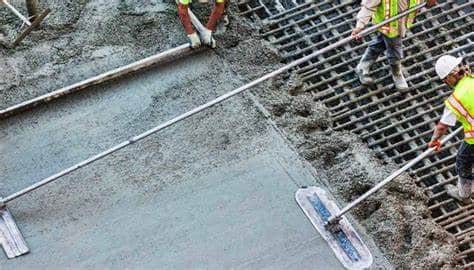How To Take Precautions While Working With Concrete In Del Mar?

- Concrete is caustic, meaning it has a high pH, similar to that of bleach. This can cause a range of skin issues for workers who come into contact with wet concrete and do not take the proper precautions. From mild irritation to more severe chemical burns, the alkaline compounds in concrete can have immediate and painful effects. Prolonged exposure can lead to a chronic condition known as cement dermatitis, which may result in scaly skin and even skin ulcers.
- Concrete dust contains silica, a material that can be extremely harmful when inhaled. Without the correct protective gear, such as a dust mask or respirator, workers can develop a condition known as silicosis. This lung disease is not only debilitating but also incurable, leading to respiratory failure in severe cases. Moreover, exposure to concrete dust can exacerbate other respiratory conditions like asthma.
- Splashes from concrete mixing or pouring can pose a serious risk to eye health. The high alkalinity can cause severe burns and even blindness. Safety goggles are a simple yet effective form of protection that must be worn at all times to prevent concrete or concrete dust from coming into contact with the eyes.
- Handling concrete often involves lifting heavy bags, bending, and twisting in ways that can cause strain on the body. These repetitive or strenuous activities can lead to musculoskeletal disorders, such as chronic back pain or repetitive strain injuries. Workers should be trained in proper lifting techniques and be provided with mechanical aids when necessary to prevent long-term physical injury.
- Concrete work can be noisy, particularly when involving power tools and machinery like drills, mixers, and saws. High decibel levels, if endured over a long period, can lead to noise-induced hearing loss (NIHL). Wearing appropriate ear protection, such as earplugs or earmuffs, can mitigate this risk, but the machinery should also be properly maintained to minimize noise output where possible.
FAQs
How Can I Safely Mix Concrete To Avoid Health Hazards?
To mix concrete safely, wear protective clothing, including gloves, long sleeves, eye protection, and a face mask to prevent skin contact and inhalation of harmful dust. Follow the manufacturer’s instructions and mix in a well-ventilated area or outdoors.
What Should I Do If I Get Concrete On My Skin?
Immediately wash the affected area with clean water. If any irritation or burn occurs, seek medical attention. Do not use acids or thinners to try and remove the concrete.
How Often Should I Replace My Protective Gear When Working With Concrete?
Inspect your protective gear regularly for any signs of wear and tear. Replace items like gloves and goggles as soon as they show damage or no longer fit properly. Respirators should have their filters changed according to the manufacturer’s recommendations or whenever they become clogged.
Conclusion
In conclusion, while concrete is indispensable in construction, the importance of exercising caution cannot be overstated. It is a material that demands respect and knowledge of its potential hazards. Employing appropriate safety measures not only protects the well-being of workers but also ensures efficiency and professionalism on the job site. As with any building material, understanding and mitigating risks is crucial to fostering a safe and healthy work environment. For more information, contact Concrete Contractor Del Mar at (858) 314-3534.